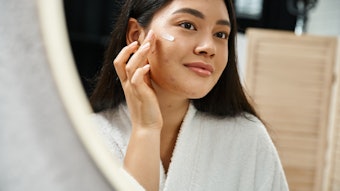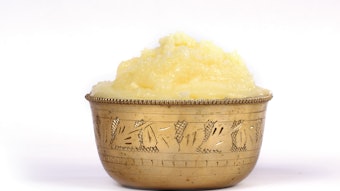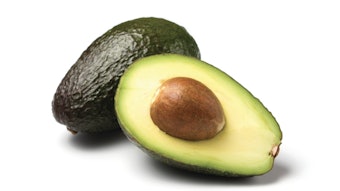
Women comprise 70% of spa and wellness consumers. As many of those women enter their 40s and 50s, they often find themselves navigating uncharted territory—a time when their bodies begin whispering, then sometimes shouting, about the profound changes ahead. Hot flashes interrupt important meetings, sleep becomes elusive and skin that once behaved predictably now seems to have a mind of its own. This is the reality of menopause, a life transition that affects every woman yet remains surprisingly under-addressed in many wellness spaces. Women are part of a rare sisterhood in the animal kingdom that experiences menopause. While this life transition can bring challenges, it also opens the door to a new chapter filled with opportunity and freedom.
For spa professionals, this represents both an opportunity and a responsibility. With 50% of our female clientele in some stage of menopause, understanding this pivotal life transition has never been more crucial. The statistics are compelling: by 2025, an estimated 1.1 billion women globally will be in their final reproductive stage, with approximately 54 million women in the US experiencing menopause. These aren't just numbers—they represent our colleagues, our clients and often ourselves, all seeking compassionate, knowledgeable care during this transformative time. With this insight, I decided to speak with five industry professionals to share their expertise on ways to reduce the impact and effects of menopause.
Understanding the Menopausal Journey
Menopause definitively marks the end of menstrual cycles and the shutting down of the reproductive system. Challenging symptoms including vaginal dryness, hot flashes, decreased libido, mood swings and hormonal fluctuations often accompany this process. However, understanding menopause through various wellness lenses can help spa professionals provide more comprehensive, supportive care.
Monique Blake, a NAMA-certified Ayurvedic practitioner and holistic wellness coach, explains that Ayurveda views menopause as a natural progression rather than a disease. "Menopause occurs when women transition from the Pitta stage to the Vata stage of life," she notes. "Pitta, represented by fire and governing digestion, is our productive summer years. The Vata stage, or winter of our lives, is regarded as our wisdom years when we can gracefully shift focus to prioritize ourselves finally."
The Ayurvedic perspective emphasizes that Vata's characteristics—dryness, joint discomfort, constipation, anxiety and insomnia—mirror many menopausal symptoms. Monique recommends daily Abhyanga (warm oil self-massage), which calms the nervous system, enhances circulation, promotes healthy skin and fosters loving self-devotion. She also suggests a Vata-balancing diet of warm, grounding foods and herbal supplements like Shatavari to nourish the female reproductive system and Ashwagandha to reduce stress and support adrenal health.
Skin Changes Through Hormonal Transitions
Ella Cressman, a licensed esthetician specializing in corrective skin care, provides crucial insight into how hormonal shifts influence skin health from perimenopause through post-menopause. "In perimenopause, estrogen and progesterone don't just decline—they rise and fall in irregular, unpredictable patterns, directly influencing skin function," she explains.
These fluctuations create unique challenges. A surge in estrogen may temporarily improve hydration and plumpness, while a drop can leave skin feeling dry, dull or more sensitive. Similarly, progesterone fluctuations can cause sudden breakouts one week and tight, flaky skin the next. Meanwhile, rising FSH (follicle-stimulating hormone) contributes to systemic changes, including uneven tone, inflammation and slow healing.
As menopause progresses, the hormonal fluctuations level out but decline sharply. Collagen loss accelerates, moisture retention drops and skin becomes thinner and less elastic. Post-menopause brings stabilized but much lower hormone levels, with ongoing estrogen depletion affecting collagen density and skin repair functions.
Ella advises anticipating these fluctuations and adapting treatments accordingly—calming inflammation, reinforcing the skin barrier and stimulating collagen production while tailoring care to daily changing needs.
Aromatherapy and Essential Oil Support
Sharen Udell, a licensed massage therapist and wellness practitioner, emphasizes aromatherapy's power in supporting menopausal clients. "Aromatherapy works through the limbic system to influence hormone balance, stress response and emotional well-being," she explains.
Essential oils offer targeted support: Clary sage contains phytoestrogenic properties that may help balance estrogen levels, lavender promotes relaxation and restful sleep, peppermint provides cooling relief for hot flashes, geranium balances mood and supports skin health and ylang ylang calms anxiety while boosting libido.
Spa applications include aromatherapy massage, facials, body wraps and custom diffuser blends. Take-home products like roll-ons or bath soaks extend therapeutic benefits, creating continuity of care that clients particularly appreciate during this transitional time.
Addressing Hair Loss Concerns
Debra Bareett, creator of Gro&Glo natural products and certified menopause coach, addresses another common concern—hair loss. Up to 40% of menopausal women experience hair loss due to hormonal imbalance and declining estrogen levels, with cortisol-induced disruption during high-stress periods compounding the issue.
Debra's recommendations include scalp massage with essential oils like rosemary or peppermint to improve circulation and promote regrowth, stress-reduction activities to lower cortisol levels and gentle hair care using sulfate-free products while avoiding heat styling. She also notes that hormone replacement therapy may help restore estrogen levels and promote hair growth, emphasizing that patience and the right combination of strategies can help women regain confidence during this challenging time.
Ancient Practices for Modern Wellness
Starlette Marshall, who facilitates healing workshops and retreats globally, introduces vaginal steaming as a complementary practice for menopausal wellness. This ancient ritual involves sitting over warm herbal steam believed to promote pelvic circulation and increase hydration.
Specific herbs address various symptoms: black cohosh for hot flashes and mood swings, calendula for nourishing mucous membranes, dong quai for hormonal balance, marshmallow root for deep hydration, motherwort for hormonal regulation and red clover as a mild phytoestrogen. Beyond physical effects, many women report emotional benefits, including reduced stress and anxiety, better sleep, enhanced mental clarity and greater personal intimacy.
Safety remains paramount—women with active infections, open wounds or IUDs should consult healthcare providers before engaging in this practice.
Creating Comprehensive Menopause Services
The convergence of these approaches reveals the importance of holistic menopause support in spa settings. Mental wellness principles remind us that wellness transcends the absence of illness—it's an active journey from languishing to flourishing. This perspective shifts focus toward empowering approaches rather than merely managing symptoms.
For spa professionals, this means creating services addressing menopausal wellness' multi-dimensional nature: physical comfort through targeted skin care and therapeutic massage, emotional support via aromatherapy and stress reduction and spiritual connection through time-honored practices adapted for contemporary needs.
The key lies in recognizing that menopausal clients often feel invisible in a youth-focused culture. By creating spaces that honor this life stage and the wisdom it brings, spa professionals can offer more than treatments—and provide validation, understanding and hope.
Implementation Strategies
Developing menopause-focused services requires thoughtful consideration of both clinical effectiveness and emotional support. Consider integrating customized skin care protocols that adapt to daily hormonal fluctuations, aromatherapy treatments specifically designed for menopausal symptoms and stress-reduction services including meditation, gentle yoga or breathing exercises.
Educational components prove invaluable, helping clients understand their changing bodies and feel less alone in their experience. Take-home products extend therapeutic benefits while providing clients with tools for self-care between visits. Staff training ensures team members can recognize menopausal symptoms and respond with appropriate sensitivity and knowledge.
Consider creating dedicated menopause treatment rooms with temperature controls for clients experiencing hot flashes, offering flexible scheduling for those dealing with sleep disruption and developing package deals that acknowledge the ongoing nature of menopausal transition rather than expecting quick fixes.
By understanding menopause as a natural transition rather than a medical condition to endure, spa leaders can create meaningful support systems that honor this life stage. The combination of ancient wisdom and modern techniques offers clients comprehensive tools for navigating this important journey with grace, comfort and empowerment.
As our industry continues to serve an increasingly menopausal clientele, those who develop expertise in this area will not only meet a growing market need but also provide invaluable support during one of life's most significant transitions.










